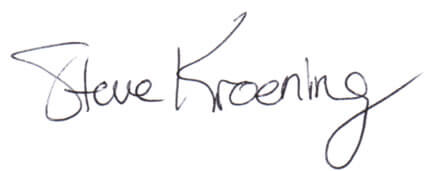
Has your vision started to go downhill? If so, it's time to look at whether anything has changed in your life. If the change in vision is rapid, it could be a vitamin deficiency. Your eye doctors may not tell you that. But a recent case study found that rapidly changing visual acuity could be the result of major dietary changes that affect your nutrition levels.
In this case study, a 44-year-old woman had noticed a dramatic change in her eyesight. Over four weeks, she suffered progressive visual loss. The doctor noticed she had bilateral retrobulbar optic neuropathy, but this wasn't the cause of the vision loss. Since she didn't have any other clinical abnormality, the doctor referred her to a clinic, which did some blood work.
The blood tests revealed that she had a severe folate deficiency. So the doctors at the clinic started looking at why she had such a severe deficiency and whether this was the cause of her vision loss. There was nothing in her medical history that warranted the severe deficiency, so they looked at her lifestyle. She drank alcohol daily and smoked 20 cigarettes per day. Other than that, the only telling information came when she described her diet. According to the clinic researchers, "Her diet usually consisted of a cup of milk tea and a slice of toast with butter for breakfast. She usually drank two to three cups of tea or coffee during the day and would have a bag of potato crisps for lunch or skip this meal. Her evening meal would usually include some meat and potatoes, but she admitted to having a limited intake of vegetables, particularly of the green leafy type and usually had these once or twice a month."
Continued Below...
The Hidden Reason Why Your Body Is Falling Apart
It can cause everything from fatigue to memory problems to age spots – yet doctors rarely check for it. Here’s how to rebuild your body and get rid of your health problems.
Click Here To Learn More
Once or twice a month? This is a diet that has very little nourishment. It's no wonder her folate levels were low. It's surprising the woman didn't have any other medical issues. But she was still relatively young. This type of diet was going to cause many health problems in the coming years.
Unfortunately, the clinic didn't address much of her diet. They told her to cut down on the alcohol intake and the smoking. Then they gave her 5 mg per day of folic acid. That was all they changed.
Within four weeks, the woman's eyesight was already much improved. Her bilateral vision went from 6/60 to 6/36, a major improvement. The researchers acknowledged that the alcohol and smoking probably didn't play any role in the vision loss. It was primarily the vitamin deficiency that caused the problem.
Why does folic acid play such a huge role in your eye health? The anterior visual pathway of your eye is highly susceptible to damage from toxins. Your body needs folic acid to produce tetrahydrofolate, which helps detox formate. When formate accumulates, it blocks oxygen to the cells in your eye. This causes vision loss.
While the type of damage this woman experienced is relatively rare, it does occur. Most people won't experience this level of vision loss. Most will simply have trouble reading. Could a folic acid deficiency be involved in simple presbyopia? A folic acid deficiency can definitely play a role. So everyone over the age of 40 needs to take a folic acid supplement. If you have a known deficiency, take 5 mg per day until you correct the deficiency. Otherwise, take 1 mg daily for prevention.
Your insider for better health,

Steve Kroening

Steve Kroening is the editor of Nutrient Insider, a twice-a-week email newsletter that brings you the latest healing breakthroughs from the world of nutrition and dietary supplements. For over 20 years, Steve has worked hand-in-hand with some of the nation's top doctors, including Drs. Robert Rowen, Frank Shallenberger, Nan Fuchs, William Campbell Douglass, and best-selling author James Balch. Steve is the author of the book Practical Guide to Home Remedies. As a health journalist, Steve's articles have appeared in countless magazines, blogs, and websites.
Source:
http://www.ncbi.nlm.nih.gov/pmc/articles/PMC2547113/